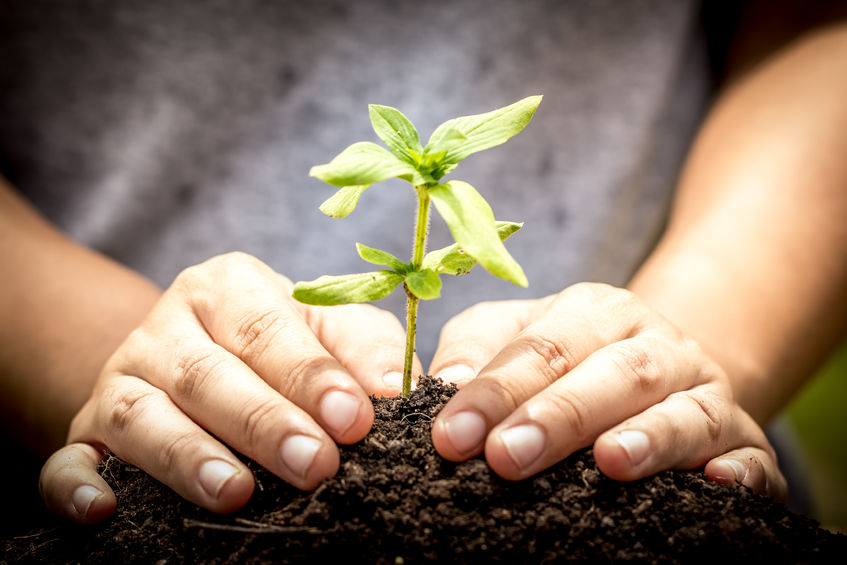
A group of MPs across the political spectrum have called for urgent action to protect soil health, highlighting the poignant point of land in England becoming unprofitable because of soil erosion and loss of carbon.
The report, published by the Environmental Audit Committee (EAC) , is the most in-depth soil report by government in years - showcasing the drastic action needed to be taken by what is otherwise a mostly ignored, or unknown, subject in British politics.
Peter Melchett, Soil Association policy director, said: "The Soil Association is delighted by the all-party Environmental Audit Committee’s groundbreaking report on soil.
"Despite us relying on a thin, vulnerable and deteriorating layer of soil for most of our food, this is the first all-party parliamentary committee enquiry into soil that we know of.
"The Soil Association believes there are three key areas for action needed to save our soils – a clear target for increasing soil organic matter, protecting lowland peat, and ending the destructive effects of maize. All of these have all been endorsed by the Committee.”
Soil organic matter target
In the report, the MPs say: "Soil organic matter content and carbon levels are central to the ability of soil to provide essential services to society.
"Soil also has to the potential to help mitigate climate change: it should be part of the solution, not part of the problem.
"Carbon losses pose a threat to the sustainability of food production, with some of the most productive land in England at risk of becoming unprofitable within a generation due to soil erosion and loss of carbon.
"At COP21 the Government signed up to an initiative to increase soil carbon levels by 0.4% per year: as part of the 25-year environment plan, it should set out specific, measurable and time-limited actions that will be taken to achieve this goal.’
Good soil health protects peat
In the report, the MPs say: "Given the concentration of carbon in peatland soils, degradation and decline of peats is particularly concerning.
"Mismanagement of these soils could undermine the UK’s efforts to manage climate change.
"The Government should take tougher action to tackle land use practices which degrade peat, such as unnecessary burning and draining when crops are absent.
"It should set out what has been learned about lowland peat management from the research it undertook after the 2011 White Paper and explain how this will be used to inform future action.
"The Government should also step up its peatland restoration programme."
Maize production can damage soil health
The MPs say: "Maize production can damage soil health when managed incorrectly, and incentives for anaerobic digestion should be structured to reflect this.
"The double subsidy for maize produced for anaerobic digestion is counterproductive and has contributed to the increase in land used for maize production.
"This subsidy regime represents a clear case in which better joined-up thinking across Government is required in order to ensure that soils are managed sustainably.
"The Government’s ambition to manage all soils sustainably by 2030 cannot be met if Defra does not achieve buy-in from other departments to achieve the ambition.
Renewable energy subsidies for anaerobic digestion should be restructured to avoid harmful unintended consequences.
"Revisions should either exclude maize from the subsidy altogether or impose strict conditions on subsidised maize production to avoid practices in high-risk locations which lead to soil damage."
Treating soil as its own ecosystem
The Soil Association has long campaigned to preserve and protect our soils, and for Government to recognise the importance of healthy soils, and strongly agrees with the Committee’s overall conclusion.
"Defra’s upcoming 25-year environment plan should seek to rectify this long-standing deficit and place soil protection at the heart of environmental policy.
"Defra must also ensure that its accompanying 25-year plan for food and farming does not sit in tension with its environment plan.
"We must move away from viewing soil merely as a growth medium and treat it as an ecosystem in its own right.
"We call for more joined up soil policy between Government departments to ensure no clashes in priorities.
"As well as taking national action, the Government should remain open to action on a European level to ensure soil protection."
The importance of soil
Soil, water and air are all essential to human life and society—but of these three, soil is often the forgotten component.
Soil plays a crucial role in many aspects of a functioning modern society, including agriculture, food security, climate change mitigation, and flood risk management.
Soil makes it possible for plants to grow: 95 percent of the world’s food production is reliant on soil.
Agricultural production from UK soil is worth £5.3bn per year.
Soil supports urban development, providing a mechanical foundation for infrastructure and housing. Soil stores and regulates water and so assists in flood risk management.
Healthy soil stores a large amount of carbon and so helps protect against climate change.
By contrast, degraded soil emits carbon into the atmosphere, potentially speeding up climate change.
Soil is home to a quarter of the earth’s biodiversity including earthworms, fungi and bacteria which maintain its fertility and provide raw materials for the medical industry.
